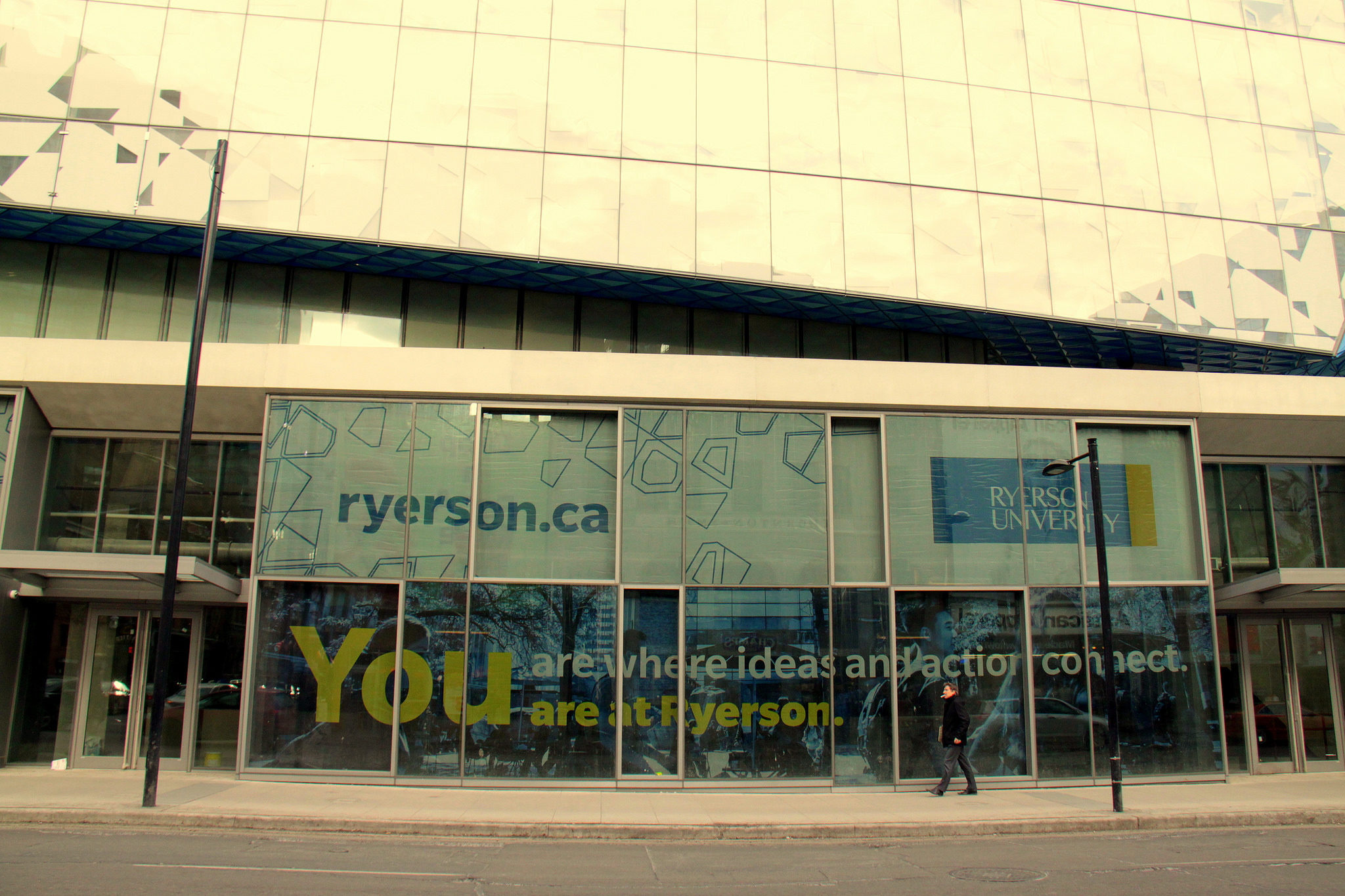Facebook and Ryerson launch Digital News Innovation Challenge
On the heels of a Torstar and Postmedia merger that will see more than 30 papers shuttered, Facebook announced it is partnering with Ryerson University to support digital innovation in news.
But there are serious questions about Facebook’s involvement that deserve answers, said Fenwick McKelvey, assistant professor in communication studies at Concordia University.
The challenge will see five finalists get the chance to develop their startup over a five-month period at the university’s business incubator, DMZ. They’ll also get up to $100,000 each and an extra $50,000 earmarked for Facebook marketing.
But who is the challenge aimed at, what constitutes a digital project, and just how involved will Facebook be?
McKelvey wonders why Facebook is supporting digital news innovation in Canada while experimenting in other countries with removing news stories from people’s Facebook feeds.
“We’re all lab rats,” he said. “It raises questions for me about why is it that Serbia is part of this type of experiment and we’re part of this more benign experiment?”
Facebook will make up a third of the challenge’s steering committee, said Janice Neil, chair of the Ryerson School of Journalism. It does plan to be involved to a certain extent in reviewing initial applicants, a company spokesperson elaborated, although it will leave final decisions up to DMZ and Ryerson.
The company’s goal is to “support the Canadian news ecosystem and help these startups to succeed,” reads a statement from Kevin Chan, head of public policy at Facebook Canada.
When asked about concerns around Facebook’s involvement given its experimentations elsewhere, Neil stressed the university’s involvement.
“We are asserting our primacy over anything journalistic,” she said.
McKelvey said he’s hoping the university recognizes not just the need for clear selection criteria, but also that those criteria reflect journalism’s social purpose.
“Ryerson really has a chance to be a leader if it shows recognition for the social good of journalism,” he said.
A 2013 Canadian Association of University Teachers report analyzed 12 partnerships similar to this one and raised serious concerns about the impact of those partnerships on a university’s role of “extending and deepening human understanding through research, scholarship and teaching.”
When it comes to wealthy donors — like Facebook — CAUT found “they often want a voice in academic matters.”
“Rather than responding to industry, government or donor demands as inappropriate and ultimately destructive of the very work universities do,” the CAUT report reads, “many seniors administrators, mindful of the serious underfunding of their institutions, agree to the demands being placed on them.”
But Neil is quite clear that checks and balances are in place and “this is not a Facebook venture.”
In fact, she said, no digital idea is off the table yet. That includes ideas that may seem contrary to Facebook’s own interests.
“If somebody pitched, you know, a massive social media platform where people could share stories and pictures … and essentially compete with Facebook,” Neil said, “if it seemed viable then I think they should have a shot.”
The lag time between the Nov. 28 announcement and the challenge’s Jan. 25 opening date is a deliberate move to get the broadest possible pool of applicants, said Neil.
“If we had a really fast turnaround — we make the announcement, taking pitches in a month — then it would naturally favour people who are already working on (a project), who already have expertise,” she said. “We really want this to be as inclusive as possible.”
McKelvey said the buzz the partnership has generated coupled with the timing also raises the prospect over the project being oversold.
“It comes at a particularly difficult time for the Canadian news media,” he said, and “I think it puts a lot of pressure on both participants and this program to be a window of solving a problem that is much greater.”
Applications for the Digital News Innovation Challenge are open from Jan. 25 to March 9.
Disclaimer: Ryerson University is a J-Source collaborating institution.
Jane Gerster is a reporter at the Winnipeg Free Press. Her work has appeared in the Toronto Star, the Globe and Mail, Vice, and Makivik Magazine, among others.

